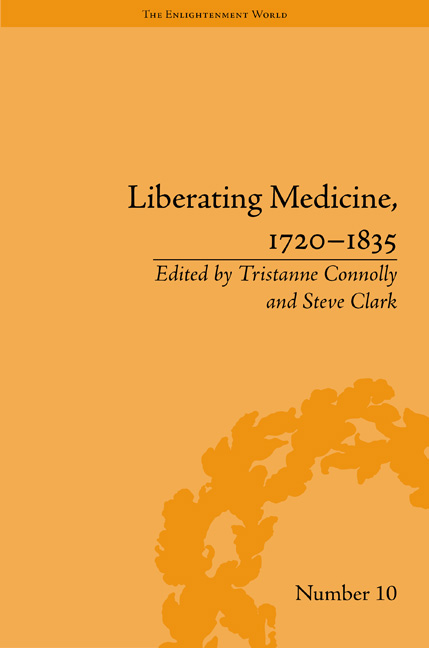Book contents
- Frontmatter
- CONTENTS
- Acknowledgements
- Contributors
- List of Figures
- Introduction
- I Spiritual Sickness and Hypochondria
- II Health and Emancipation
- III Madness
- IV Anatomized and Aestheticized Bodies
- V Birth
- 15 Anna Barbauld's ‘To a Little Invisible Being…’: Maternity in Poetry and Medicine
- 16 ‘Some Heart Once Pregnant with Celestial Fire’: Maternal Elegy in Gray and Barbauld
- Notes
- Works Cited
- Index
16 - ‘Some Heart Once Pregnant with Celestial Fire’: Maternal Elegy in Gray and Barbauld
from V - Birth
- Frontmatter
- CONTENTS
- Acknowledgements
- Contributors
- List of Figures
- Introduction
- I Spiritual Sickness and Hypochondria
- II Health and Emancipation
- III Madness
- IV Anatomized and Aestheticized Bodies
- V Birth
- 15 Anna Barbauld's ‘To a Little Invisible Being…’: Maternity in Poetry and Medicine
- 16 ‘Some Heart Once Pregnant with Celestial Fire’: Maternal Elegy in Gray and Barbauld
- Notes
- Works Cited
- Index
Summary
I
Anna Letitia Barbauld's poem ‘To a Little Invisible Being who is Expected Soon to Become Visible’ (1799) has received extensive attention as an exemplary romantic dramatization of the experience of motherhood. In this volume, in ‘Maternity in Poetry and Medicine’, Tristanne Connolly emphasizes Barbauld's own lack of biological familiarity with childbirth (though the poem has often been misread as personal testimony), and the way in which her claim to intimate authority parallels contemporary developments in midwifery and anatomy. The poem thus becomes a simultaneous display of intimacy of epistolary address, and exploration from a vitalist perspective of contemporary medical debates.
Connolly notes that Barbauld excludes men on several levels: she offers no narrative of the original act of conception; no gender is attributed to the child; no male doctors appear present at the birth; and no reference is made to a father beyond the fairly nebulous ‘precious pledge of happy love’ in the third line. In this essay, I wish to emphasize the poem's dense formal indebtedness to Thomas Gray, particularly the ‘Elegy Written in a Country Churchyard’. Gray's preoccupation with childbirth and mothering is evident in his pervasive imagery of birth-trauma, not only in his Lockean-Lucretian account of the formation of the human mind, De Principiis Cogitandi, but throughout his English poetry. The ‘heart once pregnant’ may be read in the sense of invention of ‘argument’ the OED cites Chaucer from 1374 for this usage, which unexpectedly predates by nearly two centuries ‘conceived in the womb’ (cited from 1545) despite the clear Latin etymology of ‘praegnans’. However, this essay will argue that the phrase may also be taken in the latter biological sense, with ‘celestial fire’ referring to the original spark of life and consciousness that transforms matter into a living organism. It will contend that elegiac poignancy characteristic of Gray's most powerful writing may be regarded as the dramatization of a kind of male maternity, which Barbauld recognizes and seeks to appropriate as a model for her own relation to the unborn child.
- Type
- Chapter
- Information
- Liberating Medicine, 1720–1835 , pp. 225 - 240Publisher: Pickering & ChattoFirst published in: 2014



